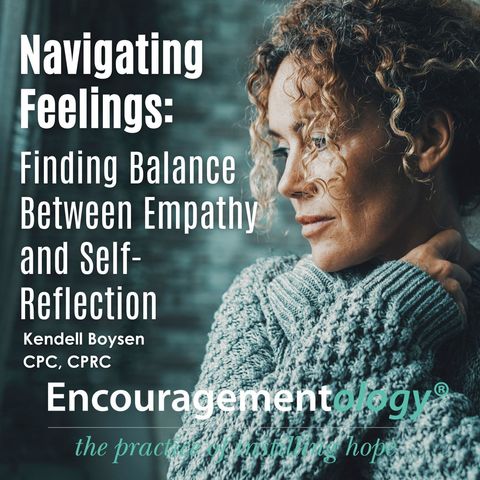Navigating Feelings: Finding Balance Between Empathy and Self-Reflection

Scarica e ascolta ovunque
Scarica i tuoi episodi preferiti e goditi l'ascolto, ovunque tu sia! Iscriviti o accedi ora per ascoltare offline.
Descrizione
SHOW NOTES: On this show…we will be navigating feelings as we try to find a balance between empathy and self-reflection. How are you feeling? How do those feelings impact another...
mostra di più- Intense Emotional Appeal
- If someone is leaning heavily into emotions—guilt, pity, anger, or fear—without much substance or reason behind it, it’s a sign they might be trying to sway you emotionally rather than engaging in a balanced conversation. Notice if they’re frequently amplifying emotional language or using words designed to make you feel extreme sympathy or urgency.
- Lack of Listening and Empathy
- People pushing an agenda will often avoid giving space to your feelings, opinions, or questions. If they dominate the conversation, rarely let you speak, or dismiss your perspective when you do, it’s a red flag. Genuine conversations include active listening; if it feels one-sided, trust that instinct.
- Deflection and Manipulation of Responsibility
- When you try to express your own emotions or viewpoints, do they quickly shift the topic back to their own concerns or play down your feelings? Manipulators often turn things around to make you feel responsible for their emotions, a tactic to keep the focus on themselves and their goals.
- Inconsistent Narratives or Exaggerations
- Listen for inconsistencies or exaggerated claims that don’t add up. Manipulators may bend the truth or overemphasize details to paint themselves in a certain light or to steer you toward a specific reaction. If something seems “off” or overly dramatic, trust your gut.
- Pressure to Make Quick Decisions
- People pushing an agenda often create a sense of urgency, pressuring you to act or decide quickly. They know that when we’re rushed, we’re less likely to question or analyze their motives. Pausing and asking for time to think it over is often the best way to get clarity.
- Using Past Events as Emotional Leverage
- Manipulators might bring up past events or your own vulnerabilities to make you feel indebted to them or guilty. They might even use their past generosity or sacrifices as leverage, nudging you to go along with their wishes. This type of guilt-tripping is a clear sign they’re trying to steer your emotions to benefit their narrative.
- Trust Your Gut
- Sometimes, the simplest way to recognize manipulation is by trusting your own feelings. If you feel drained, confused, or somehow “off” after talking with them, this might be your intuition signaling that their intentions aren’t fully in your best interest.
Informazioni
| Autore | KKFI Community Podcasts |
| Organizzazione | KKFI Community Podcasts |
| Sito | - |
| Tag |
-
|
Copyright 2024 - Spreaker Inc. an iHeartMedia Company

Commenti